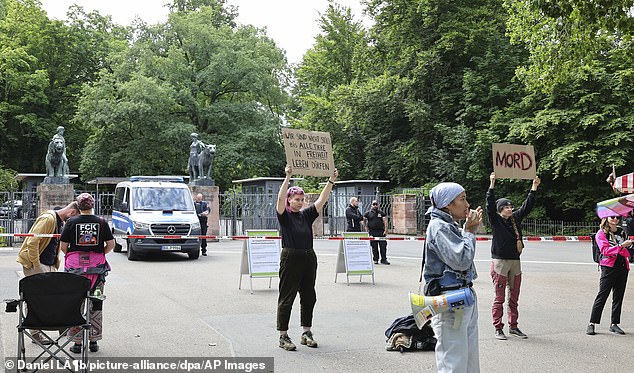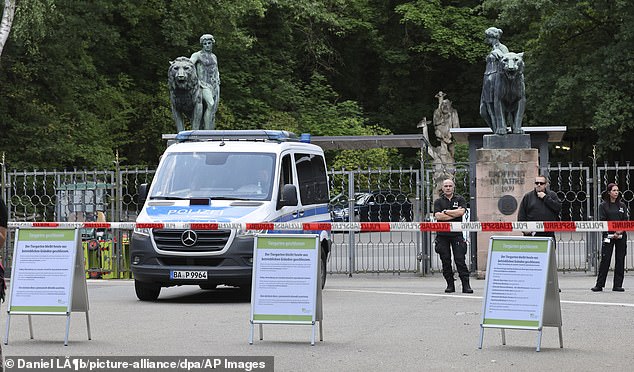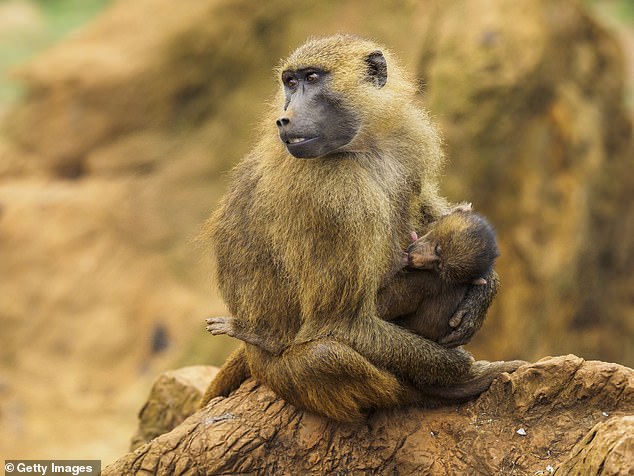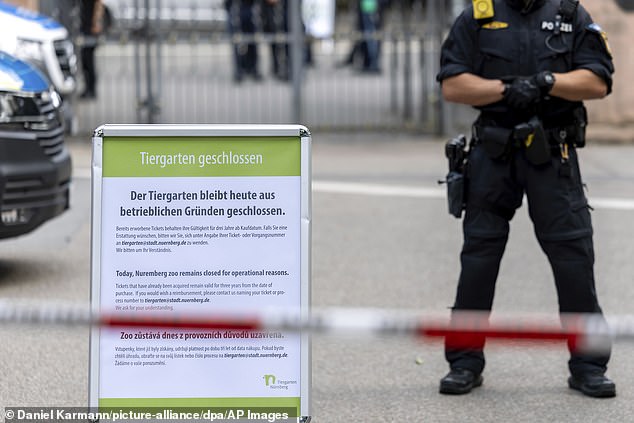A German zoo has sparked condemnation after culling 12 baboons amid fears the group had grown too large for their enclosure, while contraception had failed to stop the primates from breeding.
Nuremberg Zoo first announced plans to kill a number of baboons it did not have space for in February 2024.
Zoo officials said that they had examined offers to take in some of the animals, but they were unable to make any of them work.
Director Dag Encke said previously that the ‘sensible’ plan to kill off nearly half of the baboon population in the zoo would help ‘ensure the survival’ of the species.
The zoo had been housing 43 Guinea baboons in an enclosure, built in the late 2000s, that had originally intended to accommodate 25 animals plus their young.
Officials argued that a lack of space resulted in additional stress for the primates and more arguments between these otherwise social animals, which increasingly ended in blood.
But the decision to cull the animals drew the ire of animal rights protesters, who were seen on Tuesday afternoon forcing their way into the zoo, which announced it was closed for the day for unspecified ‘operational reasons.’
Some of the activists were arrested by police after they glued themselves to the ground in protest.

Animal rights activists gathered outside Nuremberg Zoo on Tuesday as officials proceeded with plans to cull 12 baboons

Nuremberg Zoo first announced plans to kill a number of baboons it did not have space for in February 2024. Pictured: Signs indicated on Tuesday that the zoo was closed

Guinea baboons are classified as endangered, but many zoos around the world are now at capacity to take any more of the animals
A statement released by the zoo shortly afterwards confirmed that 12 baboons had been killed, German news agency dpa reported.
Further details were not immediately available, while animal rights groups said they planned to file a criminal complaint.
The International Union for Conservation of Nature classified Guinea baboons as endangered and said they should be kept in zoos for species conservation.
Guinea baboons live in protected areas in several West African countries, but because the population there has also surged there was no space to relocate Nuremberg’s primates to African countries either, Encke previously explained.
Since 2011, 16 baboons had been moved from Nuremberg Zoo to other facilities in Paris and China.

Animal rights protesters were seen on Tuesday afternoon forcing their way into the zoo, which announced it was closed for the day for unspecified ‘operational reasons’

Officials at the zoo argued that a lack of space resulted in additional stress for the primates and more violent arguments between these otherwise social animals
But those zoos, and another in Spain to which baboons were previously sent, had reached their own capacity.
Animals are regularly euthanised in European zoos for a range of reasons, but have equally provoked anger from animal rights activists.
In 2014, Copenhagen Zoo killed a healthy two-year-old giraffe because he was ‘surplus to requirements’.
Staff then butchered its carcass in front of a crowd that included schoolchildren and fed the dead animal to the lions.











